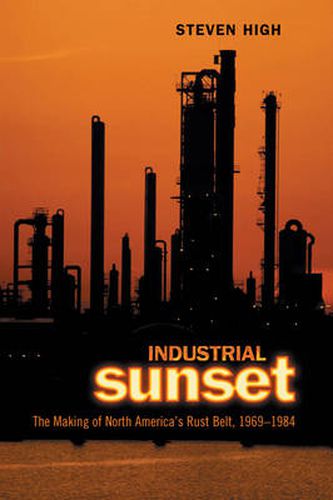Readings Newsletter
Become a Readings Member to make your shopping experience even easier.
Sign in or sign up for free!
You’re not far away from qualifying for FREE standard shipping within Australia
You’ve qualified for FREE standard shipping within Australia
The cart is loading…






Plant shutdowns in Canada and the United States from 1969 to 1984 led to an ongoing and ravaging industrial decline of the Great Lakes region. This text offers a comparative regional analysis of the economic and cultural devastation caused by shutdowns, and provides an examination of how mill and factory workers on both sides of the border made sense of their own displacement. The history of deindustrialization rendered in cultural terms reveals the importance of community and national identifications in how North Americans responded to the problem. Based on the plant shutdown stories told by over 130 industrial workers, and drawing on extensive archival and published sources, and songs and poetry from the time period covered, Steven High explores the central issues in the history and contemporary politics of plant closings. In so doing, this study poses questions about group identification and solidarity in the face of often dramatic industrial transformation.
$9.00 standard shipping within Australia
FREE standard shipping within Australia for orders over $100.00
Express & International shipping calculated at checkout
Plant shutdowns in Canada and the United States from 1969 to 1984 led to an ongoing and ravaging industrial decline of the Great Lakes region. This text offers a comparative regional analysis of the economic and cultural devastation caused by shutdowns, and provides an examination of how mill and factory workers on both sides of the border made sense of their own displacement. The history of deindustrialization rendered in cultural terms reveals the importance of community and national identifications in how North Americans responded to the problem. Based on the plant shutdown stories told by over 130 industrial workers, and drawing on extensive archival and published sources, and songs and poetry from the time period covered, Steven High explores the central issues in the history and contemporary politics of plant closings. In so doing, this study poses questions about group identification and solidarity in the face of often dramatic industrial transformation.